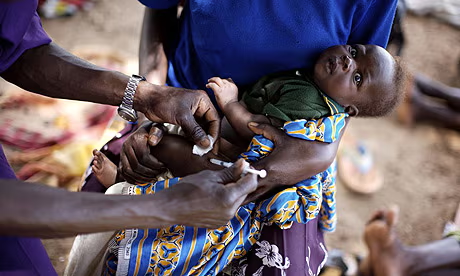There is this saying, “The rich would easily part with their wealth for health, while the healthy would easily part with their health for wealth,” and truth to point, many a Ugandan will find themselves doing the most intense activities in the name of the grind and hustle for the daily bread, at the compromise of health. Worse, the economy doesn’t seem to be reciprocating this—the shilling’s purchase power refuses to improve, unemployment doesn’t seem to be going anywhere, and most everyone is borderline poor. But while that alone would make an article of its own, today’s piece is about the link, the relationship between poverty and health in Uganda. How does our financial standing affect our health? Well, you’ve got to the right article.
Let’s start with a brutal reality: every year, about one million Ugandans are pushed even deeper into poverty due to the costs of healthcare, and that’s not a made-up statistic—it’s from the World Bank. Simply put, health in Uganda is expensive, and not in the “private clinic with aircon and free Wi-Fi” way, but in the “your child needs treatment and you have to sell the goat or take a loan with ridiculous interest” kind of way. For many, getting sick is a financial death sentence, a luxury they simply can’t afford.
The government, unfortunately, doesn’t carry most of the weight. It contributes less than 20% to national health spending, while the rest is paid out-of-pocket by individuals. This means that if you’re poor, you’re not just starting at a disadvantage—you’re also forced to choose between basic necessities and medical care. Do you treat the malaria, or do you buy posho for the week?
Let’s not forget the public healthcare system. Built decades ago and barely maintained, some hospitals and clinics lack beds, medicines, or even the staff to attend to patients, this has been a headline for many rural health centers. The few nurses and doctors available are often overworked, underpaid, and, sadly, not the most welcoming—especially to the poor. The attitude alone can make someone think twice about stepping into a health center.
Now throw sanitation into the mix, and you have a completely undesirable experience. In areas where poverty bites hardest, access to clean water and decent toilets is a luxury. Diarrheal diseases, respiratory infections, and cholera outbreaks are regular visitors—not because people don’t care, but because poverty strips away the means to maintain hygiene. And that just loops back: poor sanitation leads to sickness, sickness leads to spending, and spending leads to more poverty—the perfect situation for that Omuntu Agoyinge Wa (where should the common folk go) line.
Education also quietly ties into this relationship. A mother with no formal education is statistically (emphasis on statistically) more likely to lose her child in infancy than a mother who completed secondary school. Why? Because education equips people with knowledge—how to spot danger signs, when to seek care, how to maintain hygiene, among other things. But again, if you’re poor, education might be a distant dream.
In Uganda, access to healthcare remains a significant challenge for large portions of the population. The healthcare infrastructure is unevenly distributed, with most facilities concentrated in urban areas, leaving rural communities underserved. This geographic disparity is compounded by widespread poverty, which limits individuals’ ability to afford care even when it is available. Cultural differences and a lack of culturally sensitive care further alienate marginalized groups, leading to a healthcare system that often fails to meet the needs of its most vulnerable populations. As a result, preventable illnesses, maternal and infant mortality, and untreated chronic conditions are alarmingly high in these communities. – Locked Out of Life-Saving Care, the silent Health Crisis, Real Health Uganda
But then again, this isn’t just a rural problem. Even in towns and the fringes of Kampala, people live in slums where sanitation is a joke, nutrition is barely a consideration, and healthcare is either too far, too crowded, or too expensive. The socio-economic gap between the rich and the poor manifests as a health gap too.
What does this all mean? Simple, it means that health in Uganda is not just a matter of biology—it’s a matter of economics. Your wallet size can predict how long you live, how often you fall sick, and whether you’ll get proper treatment when you do. Poverty doesn’t just make you hungry; it makes you sick. And being sick makes you poorer.
On that note, have you ever noticed how some people never get sick? check out Why Some People Almost Never Fall Sick, While the Rest of Us are Always Catching Something.
The cycle is vicious, but acknowledging it is the first step to challenging it. We need better funding in healthcare, that much is obvious–better funding that won’t disappear mysteriously. We need stronger policies around universal health coverage. We need accessible, respectful, and well-stocked public health facilities. We definitely need awareness campaigns, and we surely need to start talking about poverty and health in the same sentence—because in Uganda, they’re not just related; they’re practically married.
Until then, we continue to hustle. We continue to walk miles to public clinics, skip meals to buy drugs, and ignore small symptoms that later become big problems. But maybe, just maybe, if we make enough noise about it, change will find us too.
You Might Also find Why Mental Health is Still Taboo in Africa but Priority in the West informative.




